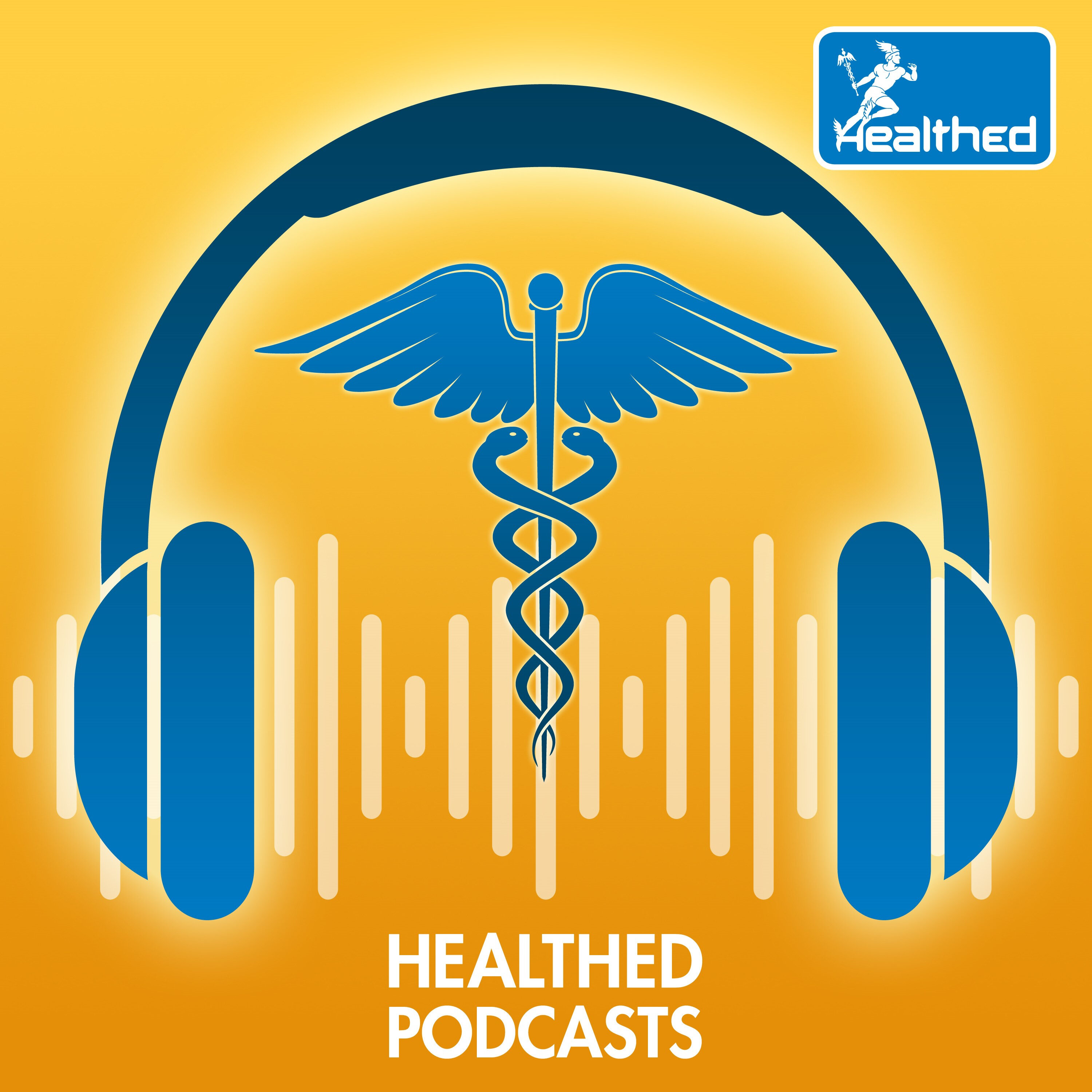

Healthed Australia
Healthed
Healthed's medical education channel features the latest high quality clinical interviews and lectures from leading experts in their field, offering health professionals a convenient new way to boost their knowledge.
Episodes
Mentioned books

Aug 22, 2025 • 28min
Supporting children through acute pain: Non-drug strategies in practice
How children’s early pain experiences can shape future sensitivity and healthcare engagement Practical tools for assessing pain across different developmental stages, from infants to adolescents Insights into the role of validation and language in building trust and reducing distress The influence of parental behaviour and anxiety on children’s pain responses Non-pharmacological strategies and comfort measures to support procedures Host: Dr Rebecca Overton | Total Time: 28 mins Expert: Dr Sarah Wallwork, Physiotherapist Register for our fortnightly FREE WEBCASTSEvery second Tuesday | 7:00pm-9:00pm AESTSee omnystudio.com/listener for privacy information.

9 snips
Aug 21, 2025 • 26min
Breast screening, density and decision-making in primary care – Part 2
Virginia Baird, a Women's Health GP retraining as a breast physician, dives into crucial aspects of breast health. She discusses improved survival rates and the vital role of early detection in breast cancer. The conversation demystifies breast density and explains what BI-RADS C and D classifications mean for women. Virginia also tackles the complexities of hormone therapy choices for those with dense breasts and emphasizes the importance of tailored treatment options. This insightful dialogue is essential for understanding breast cancer risks and screening.

Aug 20, 2025 • 25min
Cardiovascular risk assessment in lipid management
In this Healthed lecture, Dr Robert Hungerford discusses the latest evidence-based recommendation to lower LDL-C targets even further in various at-risk groups, as well as the most effective means of reaching those targets in real-world Australian clinical practice. He will also present the value of combination therapy, the value of starting combination early, the role of the newer PCSK9 inhibitors and their current PBS eligibility criteria.See omnystudio.com/listener for privacy information.

Aug 20, 2025 • 34min
Women and autism
In this Healthed lecture, Professor Attwood discusses how autism in women can be recognised and diagnosed, and how it can be effectively managed in order to improve a woman's quality of life both now and in the future.See omnystudio.com/listener for privacy information.

Aug 20, 2025 • 30min
Q&A on heavy menstrual bleeding management
In this Healthed Q&A, Dr Marita Long and Dr Talat Uppal focus on working through the popular management myths and misperceptions in GP with the aim of improving patient outcomes and quality of life.See omnystudio.com/listener for privacy information.

Aug 20, 2025 • 24min
Spirometry for COPD - GP guide
In this Healthed lecture, Professor Hubertus Jersmann will explain, spirometry, as done in general practice, enables accurate and early detection of COPD, and could be utilised more often to identify the many people who have this condition but remain undiagnosed or misdiagnosed. In addition, he will present the practical considerations of performing spirometry in the primary care setting - the logistics, the contraindications, the interpretation of results as well as common pitfalls and challenges. This educational activity was developed by Healthed at the request of and with funding from GSK.See omnystudio.com/listener for privacy information.

Aug 19, 2025 • 32min
Otoplasty in general practice: What you need to know
The optimal age for otoplasty in children and the role of cartilage development and child psychology in timing surgery Key considerations for counselling families, recovery and complications from otoplasty Medicare rules and cost implications, with funding differences for children versus adults Early non-surgical option of neonatal ear moulding, including timing and parent involvement Advances in reconstructive techniques and when specialist referral is essential Host: Dr Rebecca Overton | Total Time: 32 mins Expert: Dr Joseph Dusseldorp, Specialist Plastic Surgeon Register for our fortnightly FREE WEBCASTSEvery second Tuesday | 7:00pm-9:00pm AEST Click here to register for the next oneSee omnystudio.com/listener for privacy information.

Aug 15, 2025 • 35min
Detecting and managing mild brain injury from domestic abuse
How concussion and non-fatal strangulation cause mild brain injury and associated neurological and behavioural changes Prevalence and gendered patterns in intimate partner violence, and reasons for under-reporting Recognising acute and persistent signs, such as physical, cognitive and emotional, in primary care Practical use of screening tools, red flags for urgent referral, and when to order imaging Management strategies combining neurological recovery with safety planning and referral pathways Host: Dr Rebecca Overton | Total Time:35 mins Experts: Dr Josephine Braid, Rehabilitation Medicine Physician and Molly Banks, Speech Pathologist Register for our fortnightly FREE WEBCASTSEvery second Tuesday | 7:00pm-9:00pm AEST Click here to register for the next oneSee omnystudio.com/listener for privacy information.

Aug 14, 2025 • 24min
Cutaneous side effects of photosensitive medications
In this episode: Photosensitive reactions often appear as sunburn-like rashes on exposed skin after using certain oral or topical drugs. Diagnosis is based on timing, pattern of rash, and differentiating between phototoxic and photoallergic types. Management involves sun protection, reviewing medications, and referring to dermatologist if cases are recurrent or unusual. Host: Dr David Lim, GP and Medical Educator Expert: Dr Philip Tong, Dermatologist Total time: 24 mins Register for our fortnightly FREE WEBCASTS Every second Tuesday | 7:00pm-9:00pm AESTSee omnystudio.com/listener for privacy information.

Aug 12, 2025 • 50min
Should we let ChatGPT into our clinics? - The pros and cons of LLMs
Distinction between AI scribes and large language models, and current limits on clinical use Privacy, consent and Australian Privacy Principles requirements for AI tools How AI scribes can cut admin load while improving patient engagement Risks of general-purpose AI tools, including accuracy and medico-legal issues How workflow, specialty and setting influence AI tool integration Host: Dr Sean Stevens | Total Time: 50 mins Experts panel: Dr Rob Hosking, General Practitioner; Dr Bradley Borges, General Practitioner and Ms Tracy Pickett, Legal and Policy Adviser Register for our fortnightly FREE WEBCASTSEvery second Tuesday | 7:00pm-9:00pm AEST Click here to register for the next oneSee omnystudio.com/listener for privacy information.


